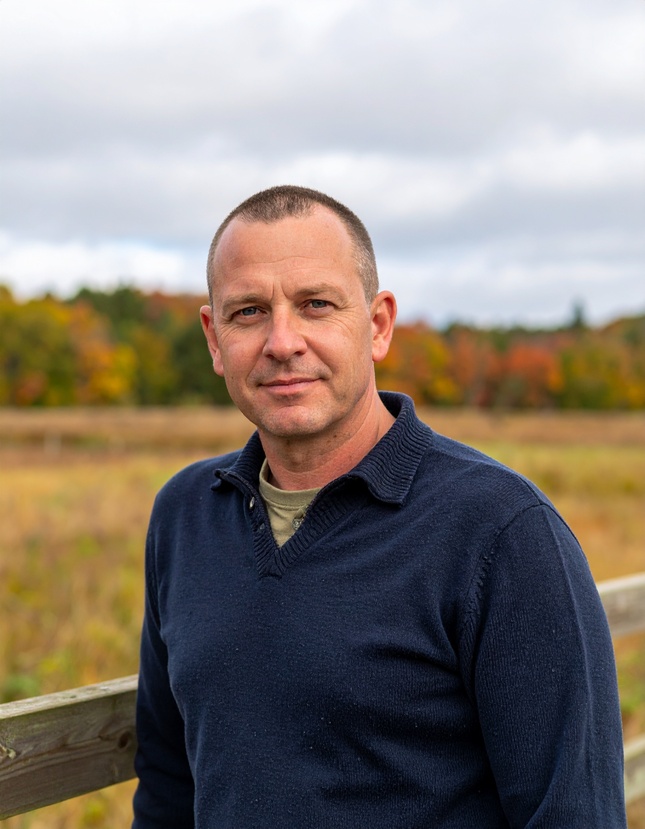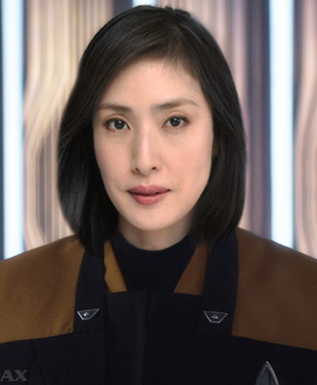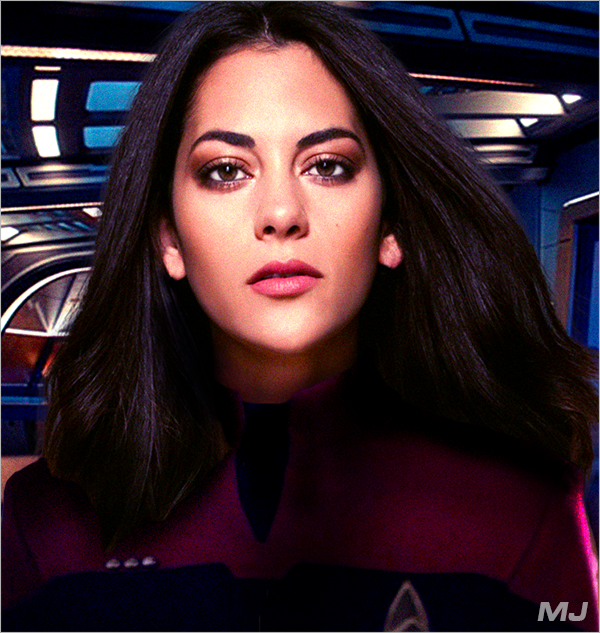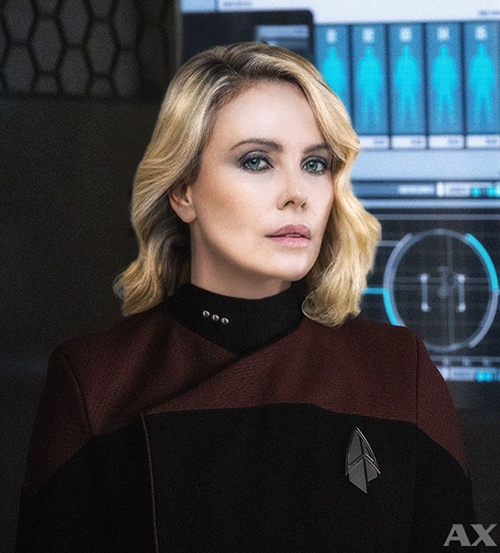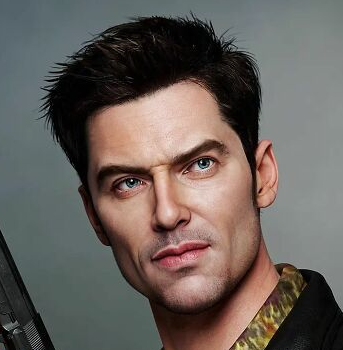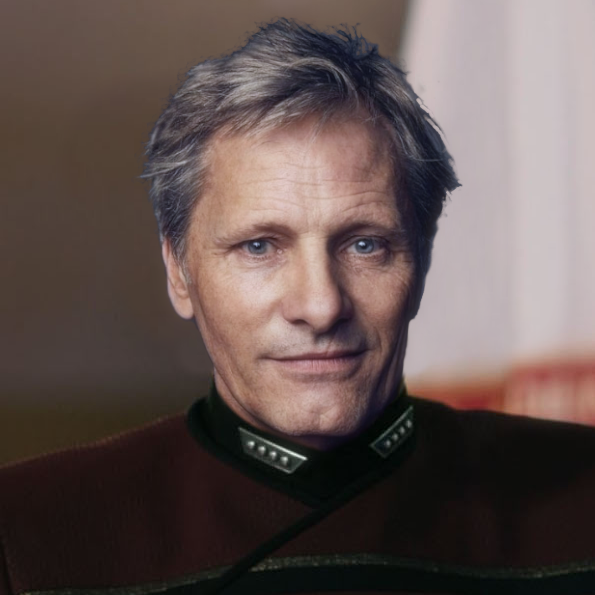He should have been on the ship. That’s what the others would have said. But his people could handle the wounded from the Diligent. The Polaris had more than enough facilities and staff for that. His place was here, where no one else’s eyes were, on the victims who, as the admiral and the general might put it, had no utility for the war they said was upon them.
“Could you pass me that sonic separator, Emilia?” Dr. James Henderson asked as he looked up from the young Klingon boy lying unconscious on the table before him, a child whose brainstem had partially separated when a shockwave from munitions hurled from space toppled the wall of the school where he’d been studying. “It’s the one next to the dermal regenerator.”
Lieutenant Emilia Balan fished around in the large bag they’d brought with them. She had no idea what a sonic separator was. She was no doctor, and she had little more than basic first aid training. Still, when Dr. Henderson had invited her down to the surface of K’t’inga IV, she couldn’t say no. They had a shared calling in their hearts, a desire to heal when everyone else was busy trying to harm, and so she went with him.
“Is this it?” Lieutenant Balan asked as she raised a device in the air.
“Yep, that’s it,” Dr. Henderson smiled as he accepted it.
And then with practiced hands, he went to work. It was a delicate affair, stimulating and reconnecting severed nerve endings, but a few minutes later, the child opened his eyes.
“Where’s my mom?” the boy asked softly.
The words cut deep into Emilia Balan’s soul. They were the words of every young person everywhere, regardless of species or creed, their first instinctive reaction to fear and pain. Sadly, though, she had no answer for him. “I’m afraid we don’t know.”
The kid’s face fell.
“But we’ll help you find her later,” Dr. Henderson added compassionately, although he feared the worst. There was little left of this place, and only a handful, like this boy, that had survived. And if the child’s mom wasn’t here, if instead she had been up above in the fleet yards, the prospects were even more grim. Still, he said it because he knew he needed to calm the child before panic set in, that cascade of emotions that could trigger a further physiological shock response, one his fragile body could not take at this moment. “For now, you need to rest. Please.”
Whether satiated by the doctor’s response or just so exhausted by the ordeal he’d been through, the child’s eyes closed as he drifted back to sleep. A hard sleep, but one he would live through, not like the unconscious state they’d originally found him in, right on the edge between life and death, buried beneath the rubble that’d once been his sanctuary.
Dr. Henderson began to pack up his supplies. It was time to move, to find the next broken soul to save. It had been like this all night, moving from building to building, tending to victim after victim, an endless trail of bodies that dotted what was left of the colony on K’t’inga IV.
“It’s crazy that all our focus is up there but there’s so much needed down here,” Lieutenant Balan sighed as she looked towards the sky. It would be dawn soon, but it didn’t feel like it. It felt like a darkness had subsumed everything, their commanders included. “Do you think the admiral is right?”
“I think the admiral thinks she is right,” Dr. Henderson offered as he looked around the burned out remains of the colony. “And big picture, she might be, but it doesn’t change the fact that it’s the little person that gets hurt in all of this.”
“Why don’t they see it?” Lieutenant Balan asked. Her heart pained for these people, the ones that Admiral Reyes had deemed a secondary priority. These colonists were not warriors, not like the soldiers on the warships of General Kloss’ squadron. They were just subjects of the Empire who’d been in the wrong place at the wrong time. “These people need us.”
“It was like this during the Dominion War too,” Dr. Henderson shared. A young exobiologist at the time, he’d seen the realities of war firsthand, not from the bridges of Starfleet’s capital ships, but from the ground in the sad and sorry places their leaders rarely walked. “There’s something about these potential galaxy-altering crises. It makes one-track minds out of our captains and admirals, causing them to forget the very principles and ideals they believe they’re fighting for.”
“I thought Admiral Reyes was better than that,” Lieutenant Balan offered. She’d always looked up to the commander of their squadron, a woman who seemed to have it all, who was deeply competent across so many disciplines, who was sharply committed to Starfleet, and who served as rock for them in even the most turbulent seas.
“Oh please,” chuckled Dr. Henderson. “Allison Reyes is the worst among them when it comes to this sort of stuff. She came of age in the sixties, and she was forged by the Dominion War. It’s easy to forget when she’s playing scientist with us in the lab, but when there’s a cause like this, she’s as fast as anyone to revert to her basal tendencies.”
Lieutenant Balan looked shocked by the candor.
“The desire to be a hero can be blinding,” Dr. Henderson continued. “And don’t get me wrong. If there’s a way that victory can be achieved, she’ll find it.” There were many things he questioned about her decision making, but her ability to pull out a win was not one among them. “The real question, though, is at what cost? To her, there is no cost too high, no price she’s unwilling to pay, not when she perceives she’s fighting for the galaxy itself.”
“But do you think that’s really what this is?” Lieutenant Balan asked. It all seemed just so abrupt. One minute, they’d been investigating the boundaries of the strange blackout phenomenon, and the next, suddenly they were in the midst of battle, and everyone was saying they were headed to war. Emotionally, she wasn’t ready for war, and logically, she wasn’t even so sure that’s what this was. Especially when they still knew so little about their supposed enemy.
“If we take the Vaadwaur at their word, it very well could be,” Dr. Henderson acknowledged grimly. He’d seen the flash traffic, delivered to his PADD a short time ago, regarding what the Polaris had just received from Fourth Fleet Command. “But that’s the admiral’s thing to sort out, the hero she can be if it’s truly necessary. But what we can do, we can be heroes down here. Right here. Right now. For these people. People that need us.”
And so back to work they went, doing what they could to heal a broken world. Or at least a small sliver of it. Without a far greater deployment than Admiral Reyes was willing to offer, there was only so much they could do. But a life saved was a life saved, and so they toiled on.

 Bravo Fleet
Bravo Fleet








